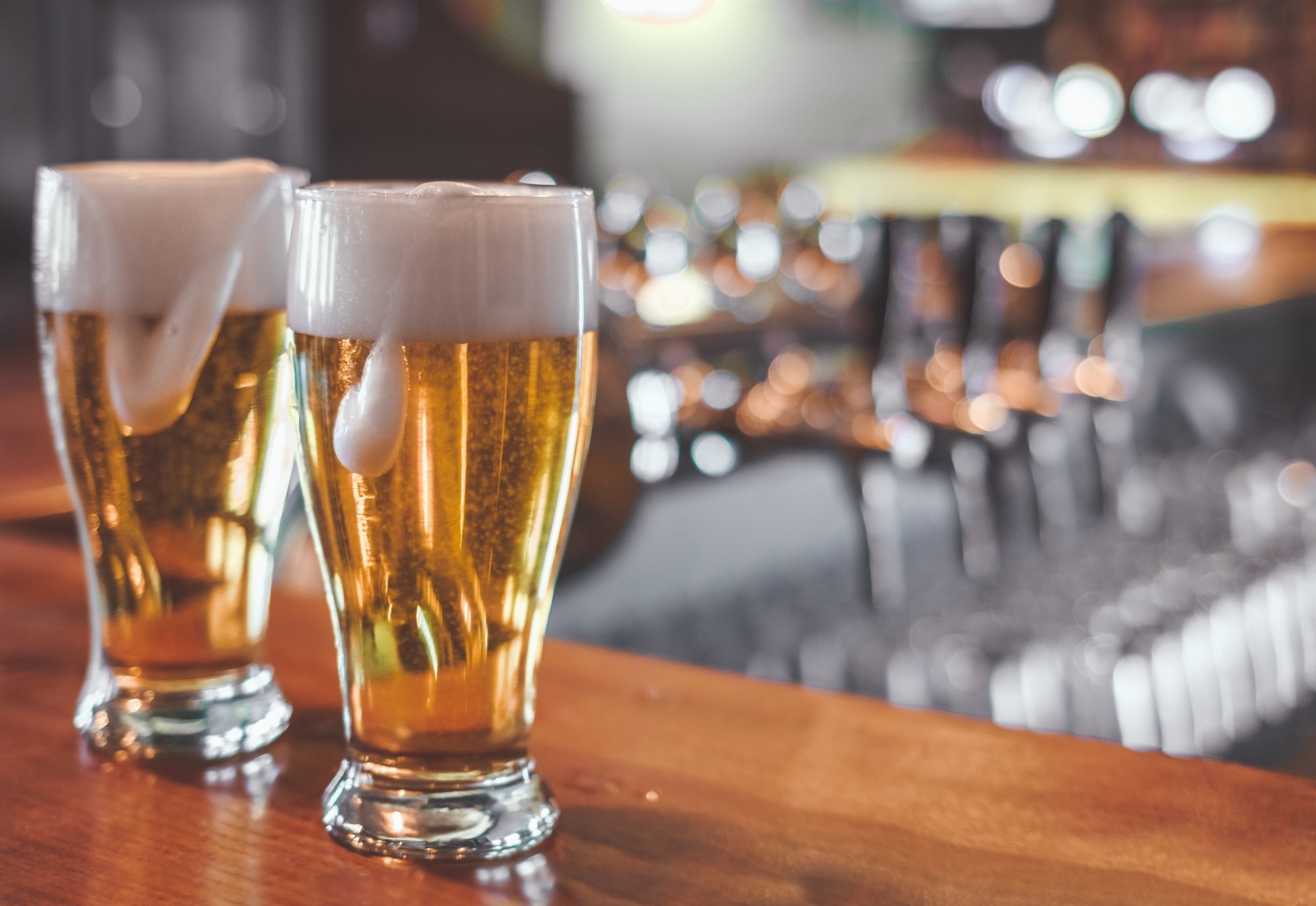Major adverse cardiovascular events (MACE) through heightened stress-related neural network activity (SNA) are associated with chronic stress. Previous research has shown that light or moderate alcohol consumption (ACl/m) could be correlated with lower MACE risk, although the precise mechanisms remain unclear.
 Study: Reduced Stress-Related Neural Network Activity Mediates the Effect of Alcohol on Cardiovascular Risk. Image Credit: Aleksandar Karanov / Shutterstock.com
Study: Reduced Stress-Related Neural Network Activity Mediates the Effect of Alcohol on Cardiovascular Risk. Image Credit: Aleksandar Karanov / Shutterstock.com
Background
Compared to abstinence, light/moderate alcohol use has been linked to lower MACE risk. However, it remains unclear whether this beneficial effect is due to alcohol itself or from confounding factors such as socioeconomic status or associated health behaviors. A deeper understanding of the underlying mechanisms is needed to develop novel treatments mimicking similar benefits without the harmful effects of alcohol.
Light/moderate alcohol consumption is associated with an array of cardiometabolic markers, none of which elucidate the impact of alcohol on MACE. Alcohol also affects the central nervous system (CNS) and, through its interactions with psychosocial stress, potentially aids in the mitigation of MACE risk. Nevertheless, the chronic effects of alcohol on the neurobiology of stress are not entirely understood.
About the study
The current study utilized a well-characterized Biobank cohort to analyze the hypothesis that light/moderate alcohol reduces MACE by attenuating adverse stress-related neural mechanisms. To this end, the impact of light/moderate alcohol consumption was evaluated after controlling for clinical, lifestyle, socioeconomic, and genetic factors. Additionally, the effect of light/moderate alcohol consumption on resting SNA was assessed.
The researchers also determined whether this effect mediated the benefits of light/moderate alcohol consumption on MACE. The potentially stronger influence of light/moderate alcohol use on MACE in individuals expected to have chronically heightened SNA was also investigated.
Key findings
A U-shaped association between alcohol consumption and MACE was observed. After accounting for potential confounding factors, including health behaviors and demographic and socioeconomic factors, light/moderate alcohol consumption was associated with lower MACE risk.
Advanced brain imaging results indicate that light/moderate alcohol consumption, as compared to abstinence, was associated with lower resting SNA. This neural effect appears to mediate the beneficial impacts of light/moderate alcohol consumption on MACE.
Light/moderate alcohol consumption was also associated with stronger effects on cardiovascular disease (CVD) risk reduction among individuals with a history of anxiety. These findings imply that alcohol could improve MACE risk, and interventions targeting SNAs may improve CVD outcomes. However, alternative approaches to reduce SNA are needed, as light/moderate alcohol consumption could also lead to non-cardiac problems, such as a heightened risk of cancer.
Are there health benefits of light/moderate alcohol use?
Researchers continue to debate the beneficial effects of light/moderate alcohol consumption. The potential presence of confounding factors has often been cited as the main reason for the lack of robust results.
A recent study on more than 300,000 individuals, after adjusting for socioeconomic variables and health behaviors, suggested that light/moderate alcohol consumption could reduce CVD risk. The current study provides an additional robustness check and validation of those findings.
Nevertheless, previous research has been limited by abstainer bias, which has caused uncertainty surrounding the protective effect of light/moderate alcohol to persist. The researchers of this study also assessed this possibility by conducting a sensitivity analysis that excluded abstainers, which also yielded similar results.
Limitations
A key limitation of the present study is its observational design. Despite controlling for numerous potential confounders, residual confounding factors may not have been accounted for. Furthermore, International Classification of Disease (ICD) codes were used to identify MACE, which could have led to the misclassification of events.
Dietary guidelines recommend no more than two drinks every day for men and one drink every day for women. Due to the limitations of the survey instrument, the distinction between individuals consuming one drink/day and those consuming two drinks/day could not be made.
The self-reported nature of the current study could have also caused individuals to underreport their alcohol consumption. The study participants’ drinking patterns may have also changed during the follow-up period.
Conclusions
The study findings suggest that the beneficial effects of light/moderate alcohol consumption on MACE risk may be due to its ability to attenuate SNA. Notably, the beneficial impact of light/moderate alcohol intake was nearly twice as great among individuals with anxiety as compared to those without anxiety.
There remains a need to develop novel interventions that positively affect the neurobiology of stress without the harmful effects of alcohol.
Journal reference:
- Mezue, K., Osbourne, M. T., Abohashem, S., et al. (2023) Reduced Stress-Related Neural Network Activity Mediates the Effect of Alcohol on Cardiovascular Risk. Journal of the American College of Cardiology 81(24); 2315-2325. doi:10.1016/j.jacc.2023.04.015